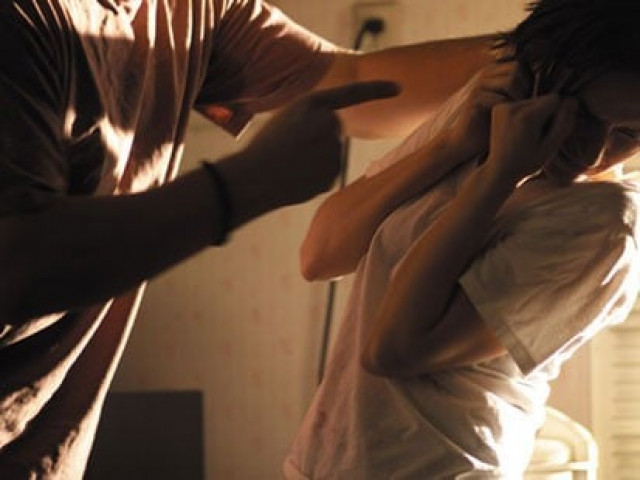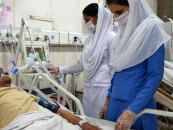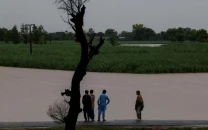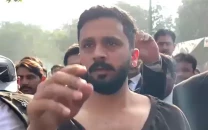South Punjab witnesses surge in cases of violence against women
Speakers call for empowering women to eradicate the menace.

Representational image
PHOTO: ONLINE
These views were expressed by speakers during a seminar organised on ‘Violence against Women’ in Multan. The speakers called for providing more opportunities to women to form a good society. Social activist Shahid Mahmood Ansari, Asifa Saleem, Rukhsana Mahboob and Kausar Shaheen spoke on the occasion.
Members Municipal Committees, including Asma Ishaq Baloch and Ghazala said about 8,000 cases regarding different types of violence were reported in 2017 only.
Formation of vigilance committees demanded to end violence against women
The Violence against Women Centre in the city received several such cases, including of domestic violence cases, harassment and sexual abuse cases, the speakers maintained.
Meanwhile, Punjab Commission on the Status of Women (PCSW) launched 16 days activism campaign to end violence against women in different districts of the province, including Faisalabad and Multan. The campaign would continue till December 10.
PCSW member Shazia George said, “As a society and as a nation, we must fight to end discrimination against women.” She pointed out that PSCW was operating through its board members and divisional coordinators in all divisions of Punjab to give suppressed women a platform to voice their grievances.
An awareness walk, under the arrangements of Social Welfare Department, was also held on the eve of ‘Violence against Women Day.’ The walk led by State Minister for Textile Haji Muhammad Akram Ansari. The walk started from District Council Chowk and culminated at Katcheri Bazar Chowk after passing through Khaleeq Qureshi Road.
Women, belonging to different NGOs and employees of the various departments, participated in the walk.
Similarly, a walk was held in Bahawalpur that started from Farid Gate and culminated at Quaid-e-Azam Medical College to raise awareness against violence on women. The walk was led by Local Government Director Fouzia Ayoub Qureshi. The participants were carrying placards inscribed with slogans in support of women’s rights.
Earlier in 2016, more than 75 cases of torture against women were reported at the Benazir Bhutto Women Crisis Centre, Multan.
Punjab Gender Parity Report 2016 stated that incidents of torture on women have increased by 20% while 173 women were killed for honour in 2015. In 2013, more than 5,800 cases of violence against women were reported in Punjab. Those cases represented 74% of the national total that year.
Since 2010, a number of pro-women laws have been introduced including the Punjab Protection of Women against Violence Act of 2016.
Govt joins global drive to end violence against women
Similarly, Special Monitoring Unit of Punjab revealed on average each day, six women are killed, eight women are raped, 11 are assaulted, and 32 abducted for various reasons. Moreover, Pakistan ranks as the third-most dangerous country for women to live in.
In 2016, the Punjab Assembly unanimously approved the Protection of Women against Violence Bill, calling for an end to all criminalities against women such as domestic violence, acid attack, rape, psychological and economic abuse, stalking and cyber-crimes. The 31 clauses of the new bill provide an efficient system for complaint registration and penalties for offenders. The new law emerged as a saving mechanism for prevention, combating and eradication of violence against women. The rate of violence against women throughout the country paints a very gloomy picture.
Published in The Express Tribune, November 27th, 2017.



















COMMENTS
Comments are moderated and generally will be posted if they are on-topic and not abusive.
For more information, please see our Comments FAQ